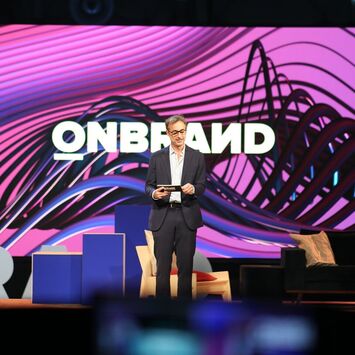The world of organic marketing as we know it might not be around for much longer. With the consolidation of effective marketing channels over the past two years and investor pressure on the remaining companies to drive profit, the outlook for organic marketing seems bleak. We are now entering a “Pay to Play” era of marketing that is controlled by the platform and not the user, forcing many brands to scramble to adapt. In this increasingly monopolistic environment, products are changing on short notice and brands are increasing investment strategies to counteract market forces. Unless new channels evolve to challenge the market leaders, marketers should prepare for the worse and start to diversify their paid marketing efforts, as well as explore these new, experimental channels to drive organic growth.
A recent study showed that Google and Facebook contributes to an 85% share of internet advertising growth year over year. Growth like this, in addition to their overall dominance of the digital marketing landscape is not the result of staying true to their roots, but rather due to their constantly changing products and algorithms to appeal to advertisers. Many of those changes have come with controversy and uproars from the marketing community, but without any strong competitors in the space challenging for supremacy and giving back power to the user, these companies can do as they please. In just the past two years alone, both companies have changed their products to blend paid and organic content, give advertisements precedence over organic placement and worked with publishers to bring their content onto their respective platforms.
Google has made ads almost indistinguishable from organic links, increased the amount of above the fold advertising slots and increased the presence of rich snippets, driving a user experience that favors clicks to paid links and information consumption without having to leave the search results page. Facebook has followed a similar tactic by cutting back on organic page reach, forcing many brands to increase advertising investment to counteract the impact of the algorithm changes to their contents visibility advertising investment to counteract the impact of the algorithm changes to their contents visibility.
In addition to their individual efforts to increase monetization, both companies are also trying to establish themselves as the go to platform for publishers. Google’s AMP and Facebook’s Instant Articles are competing for publishers to move their content from their website onto their respective platforms. This initiative would reduce the amount of outbound links that drive users to publisher’s websites and keeps users engaged within their platform. While this sounds like an erroneous idea for a publisher to consider, both platforms have promised publishers reach and future revenue generation, which would offset any traffic and revenue concerns. This pitch has been enough to convince the world's biggest publishers to join in and brands are most likely to follow suit as a result.
Based on this acceptance of fate and increasing dependence on these platforms, the question then becomes, what do these changes mean for the future of the marketing landscape? The answer to that question lies in the hands of major marketing platforms. If recent trends can serve as any indication of what awaits, then we can expect an evolution of “Pay to Play” to “Marketing Monopoly”. Organic traffic will continue to shrink with the exception of the content published on their proprietary publishing platform, and as competition and advertising demand rises on these platforms, so will the price floor to advertise.
The only way that this pattern will be disrupted is if new platforms come along that can capture a piece of the market and give life back to organic marketing. I am a big believer that there will be a platform in the near future to do just that, but the likelihood that it will make up ground on a Google or Facebook in such a short period of time is highly unlikely. This is why marketers must be dynamic with their marketing strategies and experiment with unproven channels. Similar to marketers who were able to reap the rewards of adopting platforms like Facebook or Twitter in their infant phases, marketers need to adapt, allocate resources and test strategies with these channels. I am confident that those who do will find some level of organic success.
It is pretty evident now that the future of marketing hinges on the decisions that a select few platforms make, with the only potential disruption to this path coming from a new platform or group of platforms. Until that time, platforms like Google and Facebook will rule the space and work to please investors by focusing on product monetization at the expense of organic placement. This means that marketers should start preparing for the worse now and plan for larger acquisition budgets, diversify their marketing channels and explore new channels with smaller audiences, but high organic reach.









